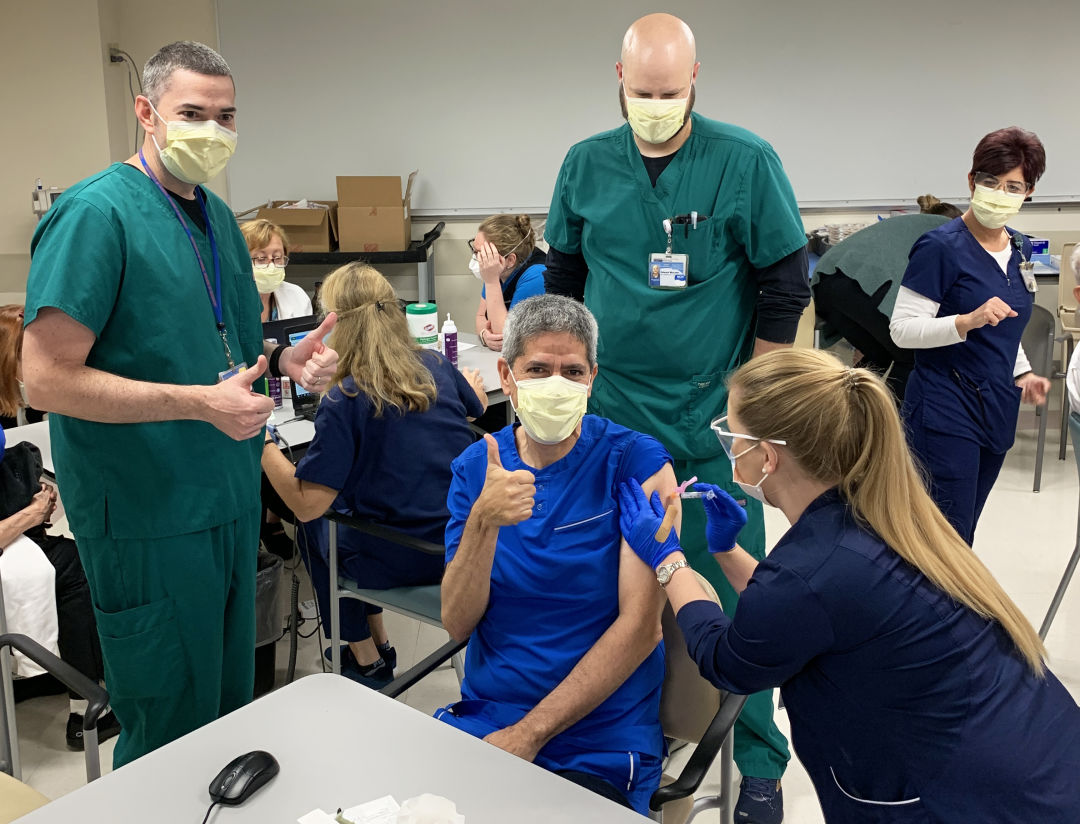Can You Still Be a Covid-19 Carrier Even if You're Fully Vaccinated?

Dr. Manuel Gordillo receives his Covid-19 vaccine earlier this year
Image: Courtesy Photo
You're fully vaccinated—can you still pass Covid-19 to someone else? Masking and social distancing will help reduce the odds, but breakthrough cases among the fully vaccinated are still possible.
Sarasota Memorial Hospital's infectious disease specialist Dr. Manuel Gordillo answered our questions about carrying Covid-19, how long immunity lasts after vaccination and more.
If you are fully vaccinated, can you still be a carrier of Covid-19?
"The short answer is yes.
"While mild breakthrough infections may be more common than previously thought, the main goal of the vaccines is to prevent severe disease and death. That is something all of the currently available Covid-19 vaccines do really well, and we are seeing significant reductions in hospitalizations and deaths from Covid-19 in those who are vaccinated."
"If you are vaccinated and get the infection, chances are you'll get very mild symptoms or no symptoms at all. While anyone who gets Covid-19 can transmit the disease, the greatest risk is to those who are unvaccinated, which is why the CDC has recommended everyone wear masks when gathered indoors, regardless of vaccination status."
How long does immunity last after full vaccination?
"When they were first rolled out, the vaccines offered about 94 percent protection. But, now, with the Delta variant and with the decrease in antibodies from vaccines given eight or nine months ago, we are down to about 80 percent protection. So boosters may be necessary for adequate protection."
"We are still waiting on official CDC guidance for booster shots for the general public. There are third shots currently being given to those who are moderately to severely immunocompromised. Because of their weakened immune systems, this group is likely to have a weaker immune response to vaccination, which may prohibit them from getting the vaccine's full protection in the first two doses."
Is the booster shot necessary right away?
"Those who are immunocompromised and eligible to get the third vaccine dose should get it now. They are at most risk of a breakthrough infection. But because the regulation process has not yet been completed, booster shot dosing schedules have not been confirmed for people who are not immunocompromised."
"Pfizer and Moderna booster shots are expected to be authorized as early as mid-September, once the regulatory process is complete. And by about Sept. 30, some of us will be needing boosters: the elderly, healthcare workers and people who live in nursing homes or other congregate living facilities—those who were first to get Covid-19 vaccines in December 2020 and January 2021."
For daily Covid-19 case updates at Sarasota Memorial, click here.



